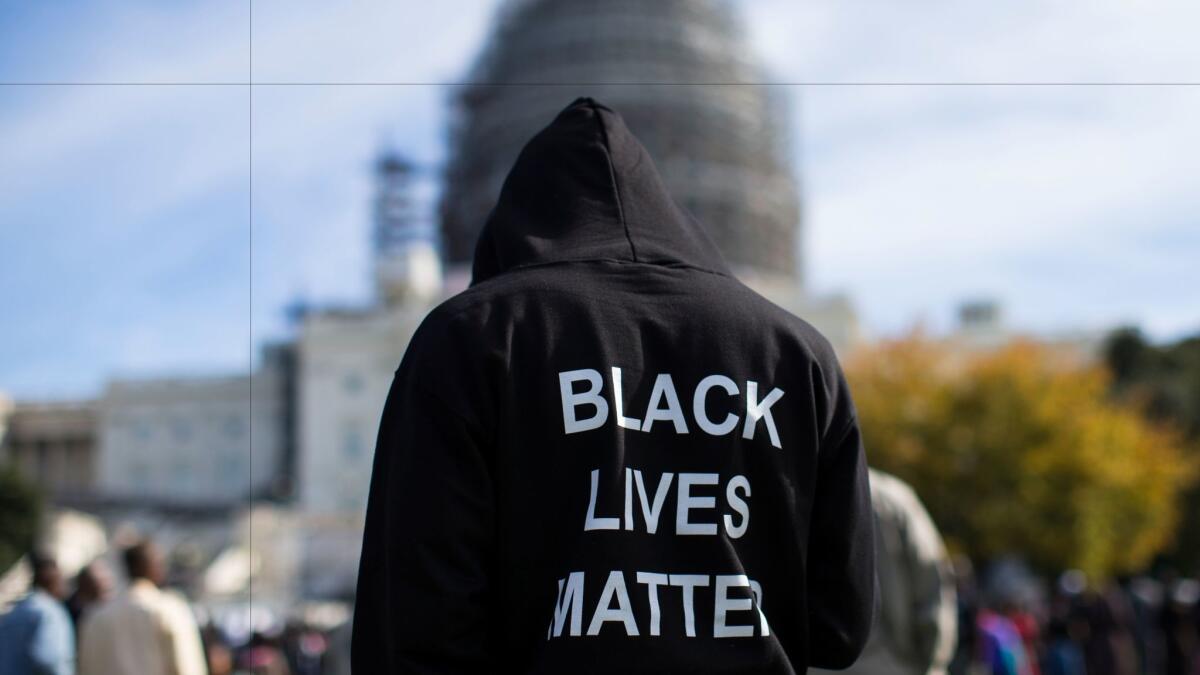Books: Racial upheaval, quiet resistance and Charles Dickens in emoji
Happy holidays! I’m Carolyn Kellogg, our book editor, wishing you the best of the season. May the winter rain fall gently on us all.
THE BIG STORY
Wesley Lowery went to Ferguson, Mo., to report on the death of Michael Brown and the protests that followed for the Washington Post. Soon he was traveling from one city to the next — Cleveland, New York — reporting on the deaths of black men at the hands of police officers and the subsequent public protests that came to be called the Black Lives Matter movement. Rebecca Carroll, one of our critics at large, reviews Lowery’s book documenting that time, “They Can’t Kill Us All.”
Carroll writes, “He seems as lost in the mayhem of black death, police violence and the legacy of virulent racism as both the people on the ground and those of us reading through these pages. Maybe that’s the point. It’s about the emotional mayhem.”

A GENTLEMAN
Amor Towles did not set out to write a topical novel, and at first glance “A Gentleman in Moscow” set in Stalin’s Soviet Union seems anything but. Yet the book, which is in its 14th week on our bestseller list, is resonating with readers in unexpected ways, Towles tells Michelle Dean, who visited with the author at his home in New York.

‘A CHRISTMAS CAROL’ revamp
It’s possible Charles Dickens is groaning in his grave like the chain-dragging ghost of Christmas past, but one scholar has decided to transform his classic “A Christmas Carol” into emoji. Kristina Semenova has translated other classics into her rebus-style narratives, including “Alice’s Adventures in Wonderland” and “Around the World in 80 Days,” and they’re available digitally for new readers and phone addicts alike.
AN UNSEEN HISTORY
In “Thundersticks,” Georgetown historian David J. Silverman recounts the Indian Wars of the 17th to 19th centuries from a fresh angle: Chronicling arms dealing by Native Americans, who swiftly built up a complex gun trade network, often in advance of European settlements. Casey Sanchez has our review.
BESTSELLERS
A couple of weeks ago I asked a question on Facebook: What 2016 book are you giving for the holidays? Of the 77 responses, which included several authors giving their own books and our contributor Michael Schaub’s joking private obsession (the football fan erotica “A Gronking to Remember”), one title emerged more than any other: “Atlas Obscura: An Explorer’s Guide to the World’s Hidden Wonders.” The book, which distills the expansive website’s adventures down to 700 idiosyncratic and delightful destinations around the globe, is in its 10th week on our bestseller list, at No. 2 in nonfiction. Apparently it’s a holiday favorite.
Cheers to you and yours!



